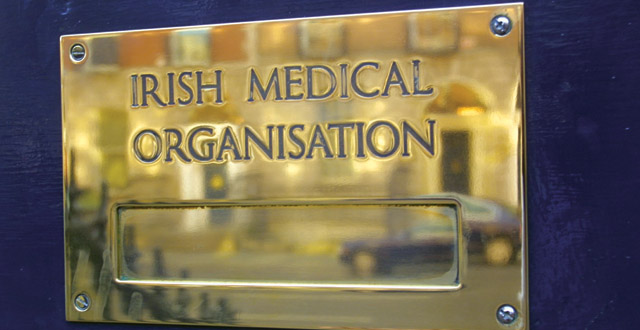The IMO warned the public health service is “facing a perfect storm” at the launch of its pre-Budget submission today (15 September).
The IMO stated that a growing and ageing population; unprecedented numbers on waiting lists; a recruitment and retention crisis amongst doctors in all specialties; a severe bed shortage; and a fragile and weakened service due to Covid-19, will all contribute to the concerning situation.
The Organisation set out a list of concerns about the health services in their submission and warned the medical workforce crisis affects all parts of the health service with:
- Almost 900 consultant posts that are vacant or filled on a temporary basis.
- A shortage of GPs around the country with less than 150 additional GPs in the PCRS system in the last four years.
- NCHD teams in many hospitals that have significant gaps in rotas, resulting in unsafe and illegal work hours.
According to the IMO, these issues have been long identified but still with no medical workforce plan.
“The failed policies of successive governments where investment is simply not matching demand has led to a system that is constantly in a state of crisis with too few beds, too few doctors, ever-increasing waiting lists and challenges in accessing services in a timely manner,” according to the Organisation’s press statement on the submission.
Speaking the day of the submission launch, the President of the IMO, Dr Clive Kilgallen said: “There is a direct correlation between the shockingly high waiting lists and the failure of the health services to recruit and retain sufficient numbers of doctors.
“We are being asked to stretch ourselves beyond capacity each and every day. Our patients are facing intolerable delays for services, and we know that access to appropriate and timely care is critical to good health outcomes. Unfortunately, with delays in our EDs and waiting lists at the level we are experiencing, the risk of mortality and poor outcomes increases.
“Each year we are told of the significant budget attached to health, in comparison to previous years, and while all investment is welcome, we must be cognizant of the fact that our population has significantly increased in recent years, and we have a growing older population who need more complex care. Unless and until we plan for a service that has sufficient capacity to meet demand, we are going to be in an endless cycle of crisis.”
The IMO urged the development of a comprehensive medical workforce plan to meet current and future population needs, with clear annual targets to increase and align the number of specialist training posts with current and future requirements for doctors.
According to the Organisation, there are 2.9 hospital beds per 1,000 population in Ireland, compared to the EU average of 4.7 beds. The IMO added that the deployment of the HSE’s Full Capacity Protocol in public hospitals to August 2022 was 1,343, compared to 1,106 deployments in all of 2021 – a 21 per cent increase.
Among its key recommendations, the IMO has called for:
- Urgent measures to attract and retain senior doctors in the public health service and reverse the trend of emigration among our newly qualified doctors;
- Immediately resolve issues of excessive working hours and non-payment of overtime;
- Investment in supports for general practice – including supports for expansion of practice teams and further investment in structured programmes of care in general practice;
- Investment in prevention and public Health and community health services;
- Immediately invest in modular builds to relieve the capacity strain on emergency departments;
- Resource a multi-annual programme of investment in acute bed capacity to include 5,000 additional public acute beds;
- Introduce tax incentives to GPs to encourage the development of GP infrastructure, and engage with the IMO in developing specific supports to help newly qualified GPs to establish as principals;
- Ongoing investment in health and social care needs of older people;
- Invest in specialist mental health services and Integration of mental health care into the wider health service;
- Ongoing investment in e-health.













Leave a Reply
You must be logged in to post a comment.